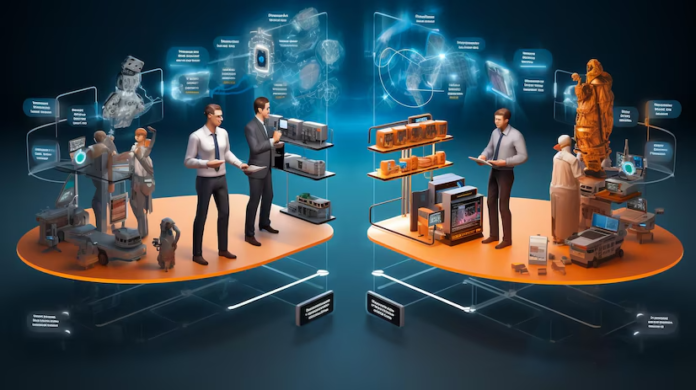In boardrooms and cubicles alike, a quiet revolution is unfolding – one that’s not about flashy gadgets or sleek technology, but about something far more profound: access to information. Data democratization, as it’s called, isn’t just a buzzword; it’s a movement reshaping the very fabric of how we work, collaborate, and make decisions.
Meet Sarah, a marketing manager at a bustling tech firm. Once, she relied on spreadsheets and reports from the data team to guide her strategies. Now, armed with user-friendly analytics tools, she’s diving headfirst into customer trends, market dynamics, and campaign performance metrics – all on her own. “It’s liberating,” she says with a grin, “to have the power to explore and understand the data that drives our business.”
For Sarah and countless others like her, data democratization isn’t just about access; it’s about empowerment. No longer shackled by technical barriers or bureaucratic hurdles, employees across departments are stepping into the realm of data analytics with newfound confidence. “I never thought I’d be crunching numbers,” admits Mark from sales, “but now I can’t imagine making decisions without them.”
But behind this newfound freedom lies a crucial ingredient: education. From data literacy workshops to hands-on training sessions, companies are investing in their most valuable asset – their people. “We’re not just teaching them how to use tools,” explains Maya, the company’s data guru. “We’re fostering a culture of curiosity and collaboration, where everyone feels they have a stake in the data-driven journey.”
Of course, with great power comes great responsibility. Data security, privacy, and ethics loom large in the age of democratization. “It’s a delicate dance,” admits Maya, “balancing openness with safeguards. But it’s a dance worth mastering.”
As the movement gains momentum, its impact reverberates far beyond the confines of office walls. From healthcare to education, from government to grassroots initiatives, the democratization of data is leveling the playing field, empowering communities to tackle complex challenges with newfound clarity and confidence.
In a world often dominated by algorithms and automation, data democratization reminds us of the human element at the heart of every decision – the power of curiosity, collaboration, and compassion. It’s a reminder that, ultimately, the most powerful tool we have isn’t a computer or a spreadsheet; it’s our capacity to learn, to connect, and to make a difference – one data point at a time.




